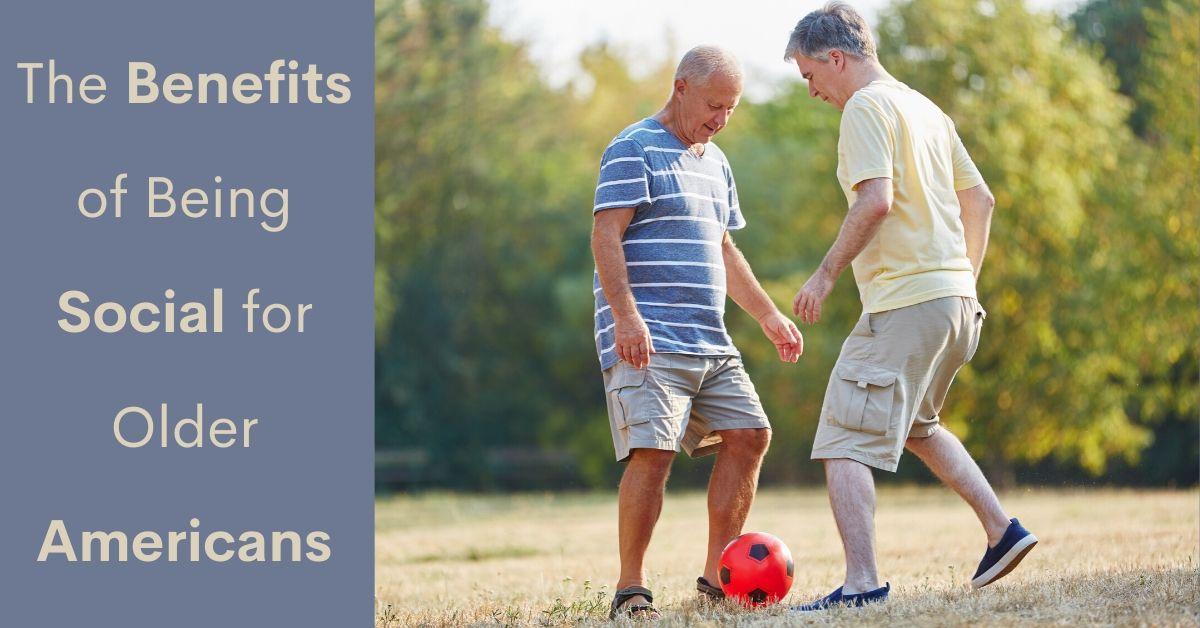As we get older, it can seem like more of a challenge to engage in social activities. Not only is it a hassle to get to and from events, but our energy can sometimes make it feel like it’s not worth it to attend. As friends and loved ones move away, we might find ourselves hesitant to make new connections with others as we get older. Those who have mobility issues and physical health problems can feel the task of social engagement to be insurmountable.
Although these mental and physical barriers are real, health experts have made it clear that social engagement has a wide range of benefits. Not only can you experience better mental health and mood, but your body and brain respond to social engagements with powerful positive results. Let’s look through some of the benefits of social engagement for seniors in hopes of finding the motivation to stay in touch with new and old friends and loved ones.
Mental Health and Social Activity
One of the most profound effects of social activity for all people is to lift the mood and emotional landscape. Feeling alone and isolated can cause a number of negative mental effects, not the least depression. On the other hand, when we stay engaged with others we find that our experiences are not isolated or hidden and that we are connected to others. That feeling of connection and similarity helps to lift the mood, reduce anxiety, and stabilize the patterns of thinking through the day. In addition to these common forms of mental health, cognition, memory, and brain health have all been associated with social activity, as well.
The healthy brain needs exercise, and engaging in conversations with others is the best way to receive new stimuli that go beyond entrenched patterns of thought. Some studies have found that those with higher levels of social activity even have lower rates of Alzheimer’s and dementia, making it all the more necessary to maintain social conditions in the senior years.
Physical Health and Social Activity
The relation between social activity and mental health might come as no surprise, but some remarkable findings have demonstrated a connection with physical health, as well. Some of the conditions shown to have lower rates among those who are socially engaged include cardiovascular problems, osteoporosis, rheumatoid arthritis, and even some cancers. Immunity has been linked to social activity, and better nutritional habits, as well. How could this diverse array of physical health measures be associated with social activity?
One of the most plausible explanations has to do with the activity and mobility associated with socializing. If you attend a social event, you may or may not be engaged in physical “exercise” while you are there, but the simple act of mobility is truly a form of physical activity. Getting out of the house, traveling to the event, walking in, and often standing with others are all simple forms of activity that tend to occur in social settings.
On the other hand, remaining at home in a comfortable chair or bed is a sure way to let your body become weak and underutilized. Although researchers continue to seek to understand these connections, you can be sure that social activity is a benefit not only to your mental health and cognition but also for your physical health and overall sense of wellbeing.
Ways to Socialize
With these many benefits in mind, what are some ways you can increase your social activity? The possibilities are as diverse as the interests you have. If you have been thinking about a topic, activity, or hobby, why not sign up for a class or workshop related to that interest?
Exercise classes, crafts, languages, and spiritual topics are all great ways to meet like-minded people. Another way to engage with the social world is by giving back to your community. No doubt the social world has fostered your growth and development, so why not return the favor to others? By volunteering you can cause a ripple effect of positivity in the world, but that positivity is not only for the people you serve. Your own mental and physical health can benefit from these social activities of generosity, as well.
If you are concerned about your hearing abilities, contact us today to schedule a hearing test and consultation. We’re here to help!

